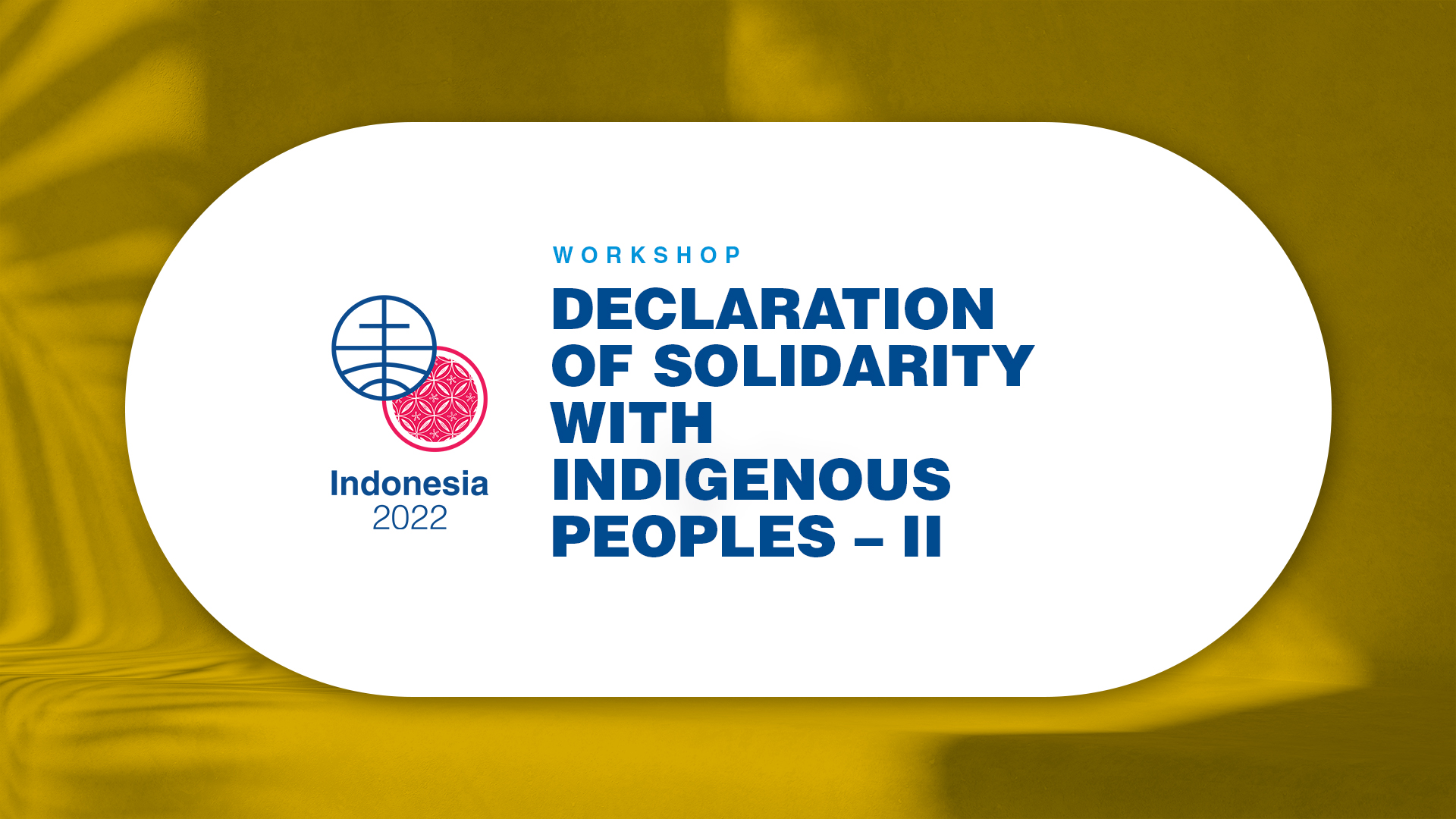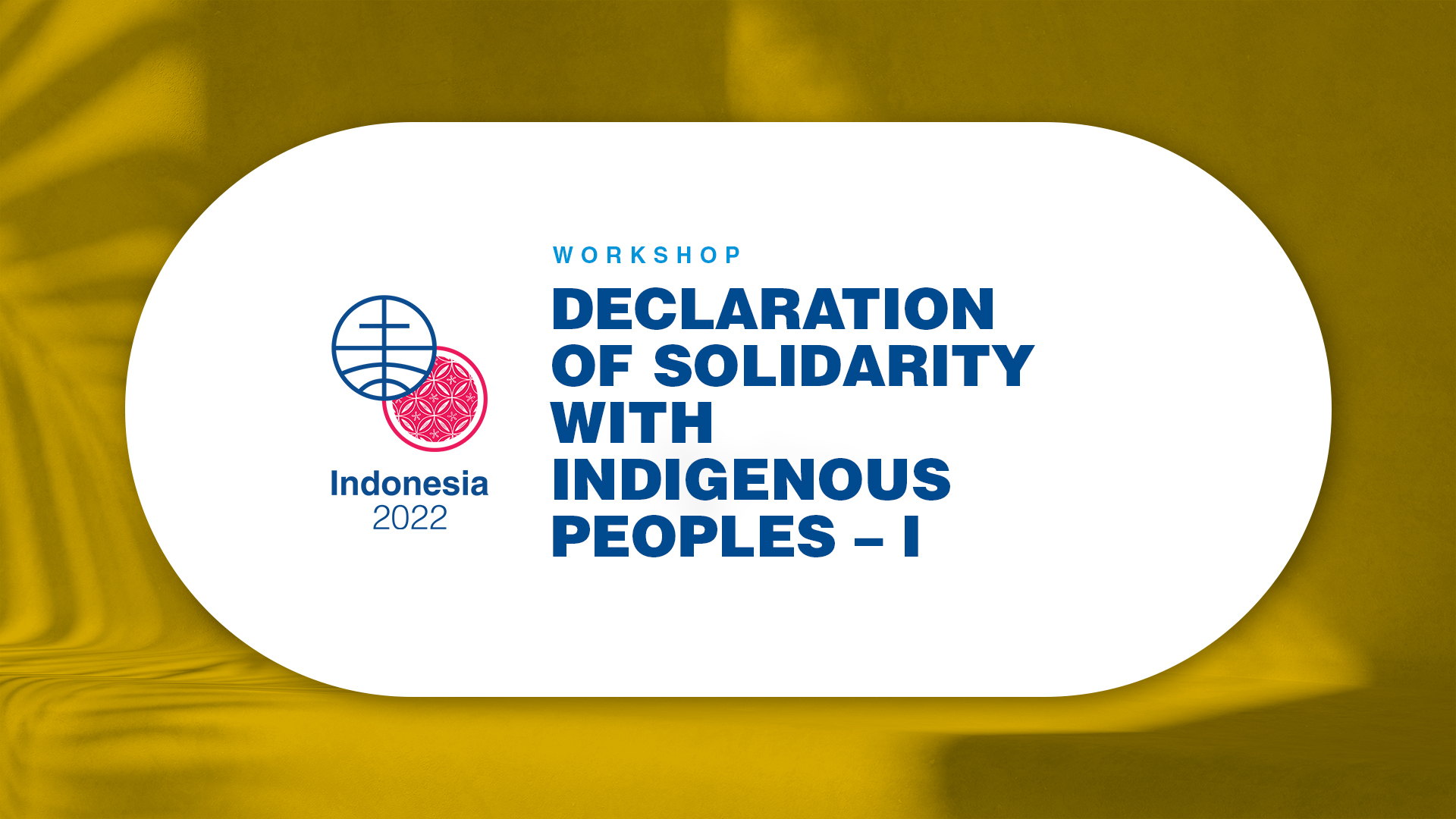-
Declaration of Solidarity with Indigenous Peoples – II
Indonesia 2022: workshop The second workshop of this three-part series will look at current struggles of Indigenous Peoples and how MWC member churches and/or related organizations are walking with and standing in solidarity with Indigenous Peoples and their ongoing struggles. Presenters: Andrew Suderman is MWC Peace Commission secretary and a member of St. Jacob’s Mennonite
-
Declaration of Solidarity with Indigenous Peoples – I
Indonesia 2022: workshop This three-part series explores the document that the Mennonite World Conference General Council approved in Kenya 2018. Presenters: Andrew Suderman is MWC Peace Commission secretary and a member of St. Jacob’s Mennonite Church (Mennonite Church Canada) and of Shalom Mennonite Congregation (Harrisonburg, Virginia, USA). Joji Pantoja is MWC Peace Commission chair, a
-
Declaration on Conscientious Objection
In the world today there are still some countries that have mandatory military conscription, and there is a wide variety of policies toward conscientious objectors. The Universal Declaration of Human Rights (article 18) states that everyone has the right to freedom of thought, conscience and religion. In addition to the Christian foundation for exemption from military
-
Dhuh Pangeran
Dhuh Pangeran / Oh Prince of Peace by Saptojoadi Sardjono
-
Esuno kokoro Jesus heart
Verse 1: Esuno Kokoro uchini (The heart of Jesus is reflected in my heart) Verse 2: Esuno Heiwa uchini (I have the peace of Jesus in my heart). Composer and performer: Mitsuru Ishido is a church leader with Tokyo Chiku Menonaito Kyokai Rengo, an MWC member church in Japan.
-
COVID-19 and 1 Peter
MWC general secretary César García and president J. Nelson Kraybill take encouragement from 1 Peter in the midst of COVID-19.
-
COVID-19 – Hong Kong
Be strong and courageous – Joshua 1:9 Regional representative Jeremiah Choi speaks with MWC general secretary César García
-
COVID-19 – Netherlands
Executive Committee Europe representative Wieteke van der Molen shares an update from the Mennonite church in the Netherlands.
-
Consultation on Believers’ Baptism
Report on the Consultation on Believers’ Baptism Participants in the Consultation on Baptism in Kingston, Jamaica 08-10 January 2015
-
Baptism and Incorporation into the Body of Christ, the Church
Lutheran-Mennonite-Roman Catholic Trilateral Conversations 2012–2017 It was with the twin goals of increasing mutual understanding and helping one another grow in faithfulness to Jesus Christ that a trilateral dialogue took place between Lutherans, Mennonites and Roman Catholics, from 2012 to 2017. Over the course of the five year period, the dialogue followed the well-established interchurch
-
Baptists and Mennonites in Dialogue
Report on Conversations between the Baptist World Alliance and the Mennonite World Conference 1989-1992
-
Being Anabaptist Christians today
Being Anabaptist Christians Today (1993) Mennonite World Conference General Council MeetingAfrica Mennonite and Brethren in Christ Women’s GatheringBulawayo, Zimbabwe, 14–21 July 1993 Gathered together from thirty-eight countries and many contexts at Bulawayo (Zimbabwe) these days in mid-July 1993, we have shared stories and testimonies which cause us to examine our own cultures in light of



